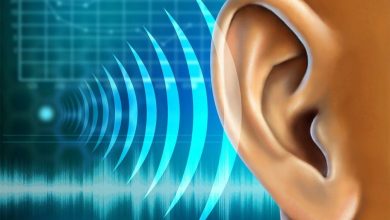Abstract: Effective communication is a vital skill in today’s interconnected world, and diction and speech play a crucial role in conveying ideas, thoughts, and emotions. This article explores the significance of diction and speech skills in communication, their impact on various aspects of personal and professional life, and strategies to enhance these skills for better interpersonal interactions.
Introduction: Diction and speech skills refer to the way individuals articulate words, phrases, and sentences in spoken language. Clear and precise communication requires not only choosing the right words but also delivering them with proper enunciation, intonation, and expression. In this article, we delve into the importance of diction and speech skills and how they contribute to effective communication.
Importance of Diction and Speech Skills:
- Clarity of Message: Effective diction ensures that your message is clearly understood by the audience. Proper pronunciation and articulation prevent misinterpretations and confusion.
- Conveying Emotions: Speech skills allow individuals to convey a wide range of emotions, from enthusiasm and empathy to seriousness and urgency. The way words are spoken can amplify or diminish the emotional impact of the message.
- Building Credibility: A person with strong diction and speech skills is often perceived as more knowledgeable and credible. Precise articulation and vocabulary contribute to a professional image.
- Engaging Presentation: Public speaking and presentations require engaging speech skills to captivate the audience’s attention and maintain their interest throughout.
- Effective Persuasion: Persuasive communication relies on the ability to articulate arguments clearly and convincingly, making strong diction and speech skills invaluable.
Impact on Personal and Professional Life:
- Career Advancement: Strong diction and speech skills enhance one’s ability to communicate effectively in job interviews, negotiations, and presentations, thereby facilitating career growth.
- Social Interactions: Effective communication fosters better relationships and connections, both personally and professionally, leading to improved networking and interpersonal skills.
- Leadership Skills: Leaders with excellent diction and speech skills inspire confidence, influence others, and articulate their vision compellingly.
- Cross-Cultural Communication: Clear diction helps bridge language barriers and ensures effective communication in diverse multicultural settings.
Strategies for Enhancing Diction and Speech Skills:
- Practice Pronunciation: Regularly practice words and sounds that challenge your pronunciation. Utilize online resources, language learning apps, or work with a language coach.
- Vocal Exercises: Engage in vocal exercises to improve enunciation, tone, and modulation. These exercises can strengthen your vocal cords and improve overall speech quality.
- Listen and Imitate: Pay attention to native speakers with excellent diction and speech skills. Practice imitating their speech patterns and intonation.
- Record Yourself: Record your speech and listen for areas that need improvement. This self-assessment helps identify weaknesses and track progress.
- Join Speaking Groups: Participate in public speaking clubs or discussion groups to gain confidence and receive constructive feedback.
Diction and speech skills are fundamental components of effective communication, influencing personal and professional success. By recognizing their importance and actively working to enhance these skills, individuals can become more adept at conveying ideas, connecting with others, and navigating the complexities of today’s communication-driven world.
Developing Clear and Understandable Language: Strategies for Improving Language Proficiency
Abstract: Clear and understandable language is a cornerstone of effective communication, enabling individuals to convey their thoughts and ideas accurately. This article explores the significance of using clear language, the impact of language proficiency on various aspects of life, and practical strategies for enhancing language skills to achieve greater clarity and understanding.
Introduction: Language is a powerful tool that facilitates communication and connection between individuals. The ability to use language clearly and effectively is essential for expressing ideas, sharing information, and engaging in meaningful conversations. This article delves into the importance of developing clear and understandable language and provides actionable strategies for improving language proficiency.
Importance of Clear and Understandable Language:
- Minimizing Misunderstandings: Clear language helps prevent misinterpretations and confusion, ensuring that the intended message is accurately received by the audience.
- Effective Information Transfer: When language is used clearly, information is transmitted accurately and efficiently, leading to better comprehension and retention.
- Enhanced Interpersonal Relationships: Clarity in communication fosters better connections with others, promoting empathy, understanding, and cooperation.
- Professional Advancement: Language proficiency is often a key factor in career success, as it enables individuals to communicate confidently in interviews, presentations, and collaborative settings.
Impact on Personal and Professional Life:
- Career Growth: Proficient language skills are highly valued in the workplace, leading to increased opportunities for advancement, effective collaboration, and successful negotiations.
- Academic Achievement: Clear language usage is vital for academic success, including writing assignments, participating in discussions, and comprehending complex concepts.
- Cultural Exchange: Language proficiency allows individuals to engage more fully in cross-cultural interactions, promoting a deeper appreciation of diverse perspectives and experiences.
- Self-Expression: A strong command of language empowers individuals to express their thoughts, feelings, and creativity more effectively.
Strategies for Enhancing Language Proficiency:
- Expand Vocabulary: Regularly learn new words and phrases to enrich your vocabulary. Read books, articles, and other materials from various genres to expose yourself to different styles of language.
- Practice Writing: Engage in regular writing exercises to improve your sentence structure, grammar, and overall writing skills. Keep a journal, write essays, or start a blog.
- Read Aloud: Reading aloud enhances pronunciation, intonation, and fluency. Choose texts that challenge your skills and focus on clear enunciation.
- Engage in Conversations: Engage in conversations with native speakers or language learners to practice your language skills in real-life scenarios.
- Language Apps and Resources: Utilize language learning apps, online courses, and language exchange platforms to receive structured guidance and practice.
- Language Workshops and Classes: Consider attending language workshops or classes to receive expert guidance and interact with peers who share your language learning goals.
Clear and understandable language is a valuable asset that impacts communication, relationships, and personal growth. By recognizing the importance of language proficiency and actively working to enhance it through consistent practice and targeted learning strategies, individuals can unlock new opportunities, connect more deeply with others, and navigate the complexities of today’s interconnected world.


















